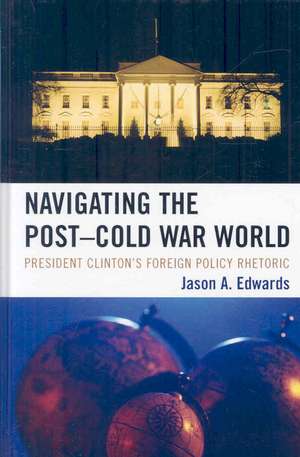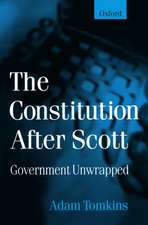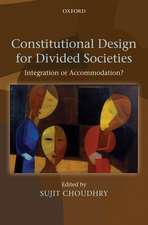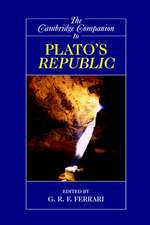Navigating the Post-Cold War World: Lexington Studies in Political Communication
Autor Jason A. Edwardsen Limba Engleză Hardback – 15 dec 2008
Din seria Lexington Studies in Political Communication
-
 Preț: 403.00 lei
Preț: 403.00 lei -
 Preț: 445.03 lei
Preț: 445.03 lei -
 Preț: 469.08 lei
Preț: 469.08 lei -
 Preț: 447.57 lei
Preț: 447.57 lei -
 Preț: 444.70 lei
Preț: 444.70 lei -
 Preț: 441.18 lei
Preț: 441.18 lei -
 Preț: 424.08 lei
Preț: 424.08 lei - 23%
 Preț: 698.88 lei
Preț: 698.88 lei -
 Preț: 401.77 lei
Preț: 401.77 lei -
 Preț: 448.72 lei
Preț: 448.72 lei -
 Preț: 467.17 lei
Preț: 467.17 lei -
 Preț: 440.82 lei
Preț: 440.82 lei -
 Preț: 447.57 lei
Preț: 447.57 lei -
 Preț: 450.85 lei
Preț: 450.85 lei -
 Preț: 492.19 lei
Preț: 492.19 lei -
 Preț: 450.47 lei
Preț: 450.47 lei -
 Preț: 450.67 lei
Preț: 450.67 lei - 23%
 Preț: 464.45 lei
Preț: 464.45 lei -
 Preț: 424.50 lei
Preț: 424.50 lei - 27%
 Preț: 978.56 lei
Preț: 978.56 lei -
 Preț: 447.57 lei
Preț: 447.57 lei - 23%
 Preț: 698.12 lei
Preț: 698.12 lei -
 Preț: 448.34 lei
Preț: 448.34 lei -
 Preț: 436.77 lei
Preț: 436.77 lei -
 Preț: 523.02 lei
Preț: 523.02 lei -
 Preț: 434.34 lei
Preț: 434.34 lei - 23%
 Preț: 658.36 lei
Preț: 658.36 lei -
 Preț: 449.53 lei
Preț: 449.53 lei - 27%
 Preț: 735.69 lei
Preț: 735.69 lei - 27%
 Preț: 816.60 lei
Preț: 816.60 lei - 27%
 Preț: 816.03 lei
Preț: 816.03 lei
Preț: 700.68 lei
Preț vechi: 909.96 lei
-23% Nou
Puncte Express: 1051
Preț estimativ în valută:
134.12€ • 145.73$ • 112.73£
134.12€ • 145.73$ • 112.73£
Carte tipărită la comandă
Livrare economică 21 aprilie-05 mai
Preluare comenzi: 021 569.72.76
Specificații
ISBN-13: 9780739122266
ISBN-10: 0739122266
Pagini: 199
Dimensiuni: 157 x 231 x 25 mm
Greutate: 0.45 kg
Editura: Rowman & Littlefield
Seria Lexington Studies in Political Communication
ISBN-10: 0739122266
Pagini: 199
Dimensiuni: 157 x 231 x 25 mm
Greutate: 0.45 kg
Editura: Rowman & Littlefield
Seria Lexington Studies in Political Communication
Notă biografică
Descriere
This book examines the nuances and unique rhetorical contributions President Bill Clinton made to America's foreign policy culture. It is among the first of its kind to provide a comprehensive account of President Clinton's foreign policy rhetoric while also synthesizing ideas that underwrite America's foreign policy culture.
















